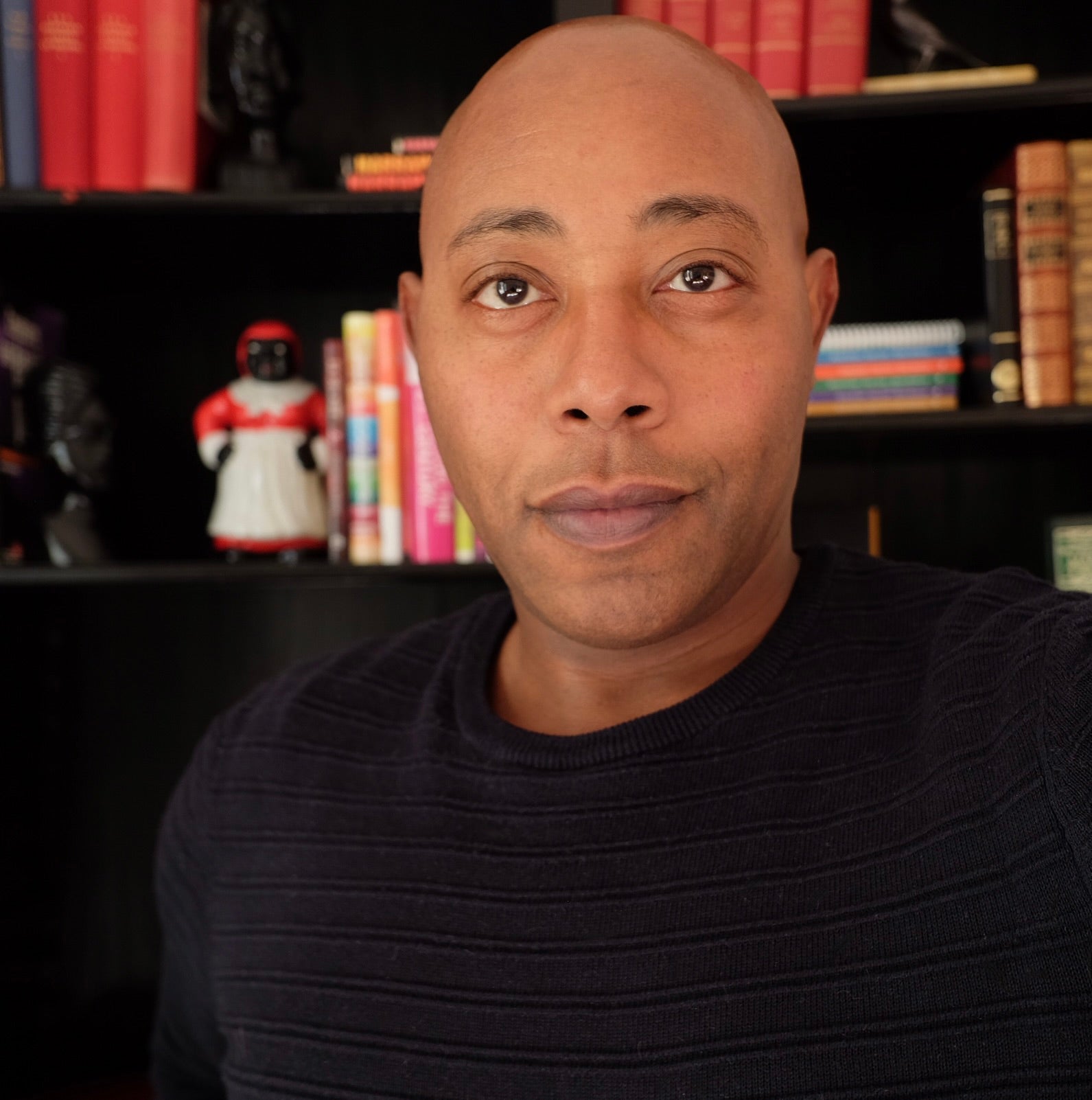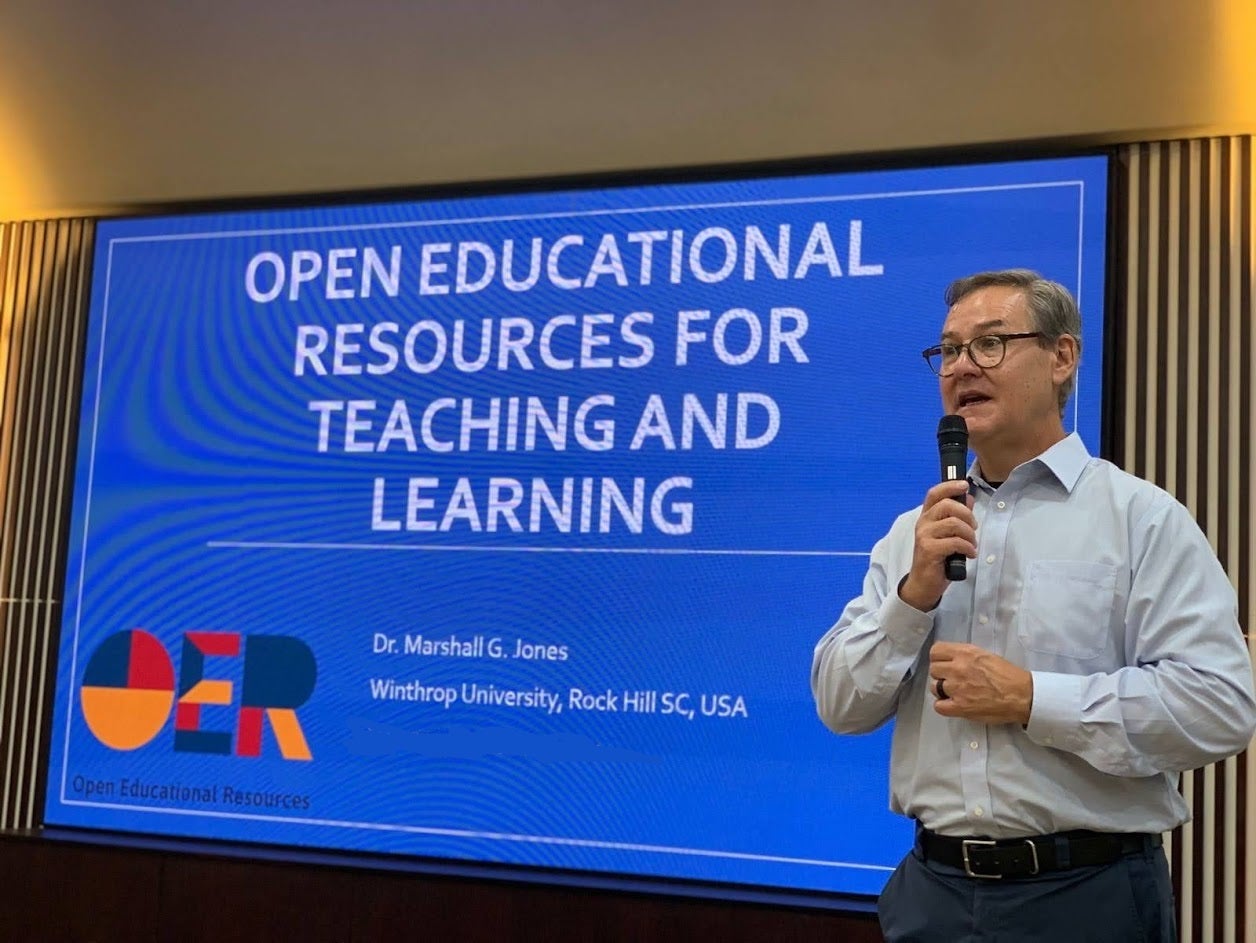In this featured article, three recent English Language Specialists – Walter Henderson, Jr., Amy Gooden, and Marshall G. Jones – share project highlights focusing on resource creation and utilization on projects in Mexico, the Dominican Republic, and Vietnam.
Walter Henderson, Jr. – The Dominican Republic
(January 10, 2022 – March 25, 2022)
- Project: Needs assessment for a teacher-training university’s English exit exam
- Audience: University teachers and supervisors
- Schedule: 6 teacher-training campuses, virtual
I am a devout fan of English Language Programs. These experiences have reshaped my personal and professional life in immeasurable ways.
As is the case with many higher-ed institutions around the world, the six-campus teacher-training Instituto Superior de Formación Docente Salomé Ureña (ISFODOSU) in the Dominican Republic employs an English exit exam for its students. Specialist Walter Henderson, Jr. conducted a thorough needs assessment of ISFODOSU’s exam and all related elements – such as student and teacher interactions, instructional materials, program duration, curriculum, and an awareness of international standards.
Henderson saw in this project an opportunity to unlock what he terms the “hidden curriculum” at ISFODOSU. Elaborating on this, the dual-language TESOL textbook publisher explains that his passion is “to develop content that speaks directly to students’ and teachers’ cultural beliefs and values, relevant knowledge, and interests in a respectful way.” Tapping into that hidden curriculum allowed Henderson to encourage agency and authenticity among the staff he worked with. “My most noteworthy contribution during my project was opening the eyes of university administrators and teachers to having a stronger voice in the selection and development of bespoke English-language program materials that better match their needs, reality, and overall interests,” he says.
Henderson consulted with administration, undertook class observations, gave student and teacher interviews, reviewed the English proficiency exam and its results, and analyzed other standardized English-language proficiency exams throughout the two and a half months allotted to this needs assessment project. He also looked critically at the course materials in use at ISFODOSU and at a prototype design of localized English language materials. All told, this led to his recommendations for more student talking time, specific preparatory classes for standardized testing, the development of an independent Listening and Speaking course, and the development of a locally sourced textbook that challenges students in a culturally relevant and respectful manner.
The result? Enthusiastic feedback and participation in the needs assessment’s conclusive meetings. “Teachers and administration were particularly attracted to bespoke English textbook samples that incorporated elements of Dominican culture, reality, and culture,” he recalls. “Teachers and administration were also interested in incorporating training for standardized proficiency exams, exploring strategies for reducing Teacher Talking Time, and investigating solutions to incorporate Listening and Speaking courses.”
Henderson attributes much of the project’s success to his capacity to observe the students, teachers and administrators he interacted with both in the classroom and in meetings at ISFODOSU. “In many cases, what we want to learn about our teachers, students, and materials and how we all interact with them are right in front of our eyes and ears,” he says. “Incorporating classroom observation strategies in my own analysis provided me with more information than any official documents provided by administration and other sources.”
Henderson’s decision to give his final needs assessments to university administrators in Spanish as well as English is indicative of the high priority he places on locally relevant signifiers when building and nurturing relationships with local partners. “The administrators appreciated my effort and seemed more attentive to the voice of the speaker who spoke their language with a mixture of various Spanish-speaking accents,” he says. Moreover, the experience of sharing those final results put Henderson in the mindset of the many students and staff who struggle or are apprehensive about speaking English with others or in front of a group, serving as another cultural bridge between him and his local counterparts.
Expanding on the concept of cultural exchange, Henderson adds that his personal background goes a long way towards demonstrating the diversity – and global value – of English Language Programs and their participants. “I come from the Southern United States which is a region that many cultures aren’t familiar with other than in stereotypes,” he notes. “Equally, working in this capacity as a U.S. Black male has altered the expectations and experiences of many who had only ever been exposed in limited ways to U.S. diversity.”
Amy Gooden – Mexico
(May 30 – September 12, 2022)
- Project: Revising Resource Guide on Mentoring and Supervision
- Audience: University TEFL Mentors and Supervisors
- Schedule: 1 campus (Meritorious Autonomous University of Puebla [BUAP], Puebla, Mexico), virtual
When Specialist Amy Gooden was invited to lead an academic team in the revision of a Resource Guide for university TEFL mentors and supervisors in Puebla, Mexico, she couldn’t have been more thrilled to lead something so relevant to her own professional interests. “Given the trajectory of my own research, I was deeply thankful for and inspired by the opportunity to engage in mutual exchange of knowledge with colleagues in Mexico who had a shared vision for innovative approaches to promoting language teacher capacity,” she says.
An associate professor at Lesley University in Massachusetts, Gooden shared methodology from her recently published casebooks with local counterparts to facilitate the co-creation of authentic, context-driven case studies which became a crucial component of the revised Resource Guide. The academic team was also able to leverage blended learning applications to enhance learner engagement with the Resource Guide. To make the Resource Guide an inclusive resource, participating partner institutions came together in a rare instance of cross-institutional collaboration to see its publication.
Outside of her work as an English Language Specialist, Gooden is an associate professor of TESOL and Bilingual Education at Lesley University in Cambridge, Massachusetts.
The Resource Guide is notable for the collaborative precedent it sets in the local institutions who composed it with Gooden. “With wide-ranging readership, the publication of this guide will encourage best practice for ELT mentors and supervisors in Mexico across K-12 and university contexts,” she says. “This was a ground-breaking event, since traditionally these schools and universities do not collaborate on teacher training or other projects. To produce resources that are relevant to the context in which you serve, one must possess cultural competence and humility and engage in active listening, ongoing needs assessment, and collaboration. As project lead, it was imperative for me to model and embrace an inclusive, culturally sustaining approach to the global partnership.”
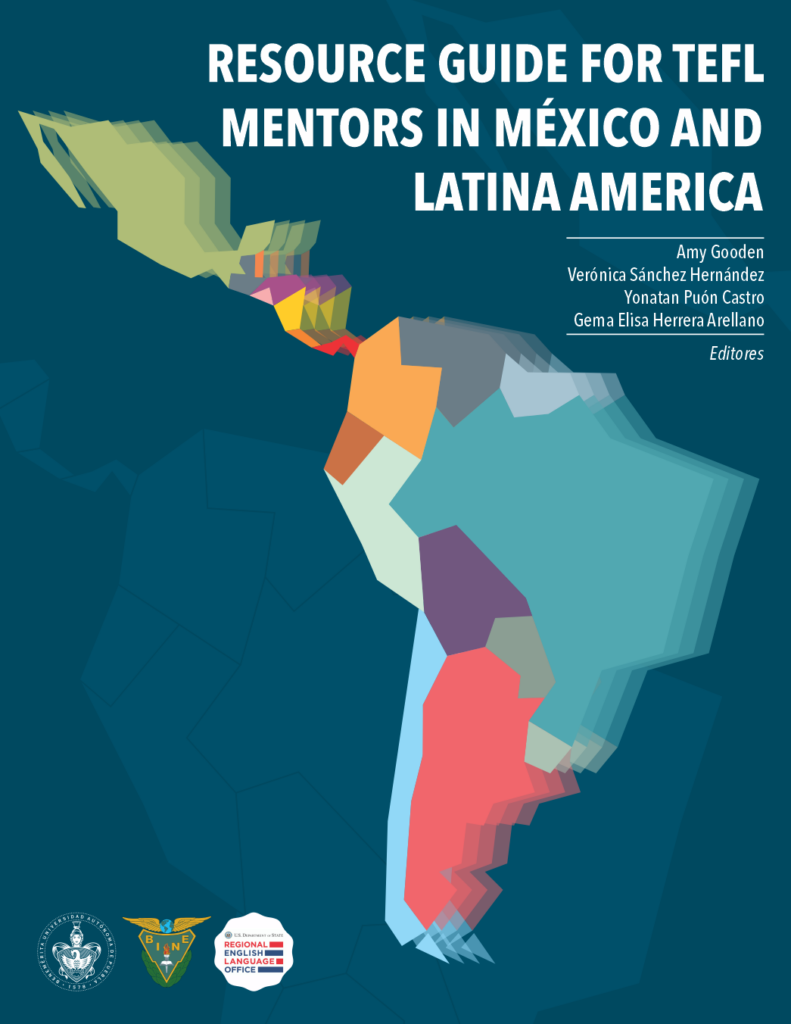
In addition to synthesizing best approaches to mentoring across themes based on current trends in the literature, some of the multimodal activities and resources Gooden and the academic team devised included self-efficacy checklists, journal reflection prompts, and reflection prompts for ELT mentors to self-assess their relevant dispositions, knowledge, and skills. This was done in keeping with Gooden’s sense of what constitutes a good language-learning resource. “Effective learner resources for ELT mentors promote opportunities for critical reflection and weave mentor and student teacher experiences into the curriculum,” she says. “Highly impactful learner resources should also facilitate a bridge between theory and practice while modeling critical-thinking strategies and learning processes.”
Gooden is full of gratitude for the opportunities the English Language Specialist Program has given her to broaden her global perspectives of issues in the field, for the impact the project has had on her own understandings of decolonization and restorative justice in language learning environments, and for the unforgettable experiences she shared with local counterparts in Mexico. “My most memorable experiences were the dynamic conversations shaped by the rich diversity of experiences, expertise, practical concerns, issues, and interests of the academic team,” she says. “The synergy of ideas and collegiality between scholars across borders committed to the same language education cause was incredibly inspiring.”
Marshall G. Jones – Vietnam
(September 12, 2022 – October 3, 2022)
- Project: Workshops on the awareness and use of Open Educational Resources (OERs) and Online Learning
- Audience: K-12 teachers and university faculty and administrators
- Schedule: 3 towns, 7 workshops, in-person
Marshall G. Jones had three clear objectives during his in-person Specialist project in Vietnam: after introducing teachers in K12 and higher education to open educational resources (OERs), he taught educators how to create their own OERs, and then connected OERs to building better online learning. Jones had a sense of some of the challenges he might encounter from the outset, in part recalling prior classroom experiences with an NGO in Son Tay in 2019 but also anticipating how the last three years have impacted teachers and students around the world. “Many people got their first taste of online learning during the pandemic and didn’t like it very much,” Jones said.
An ambitious but focused outline guided his workshop participants through the process. Once he’d introduced OERs, Jones had participants identify their classrooms’ learning needs, asking them to think carefully about where they taught and what resources they had available to them. The next part of the workshops saw participants looking for OERs that they could realistically use in their environment. To help lessen the cognitive load on participants who might be overwhelmed at pages and pages of available OERs, Jones developed a list with guidance from the RELO team in Hanoi. That list, which is regularly updated, contributes to the overall sustainability of the project.
As many Specialists are wont to do, Jones describes his experience in Vietnam as a whirlwind of workshopping, traveling, and sightseeing. “One thing you have to realize about working as [an in-country] Specialist is that it is full-time work…and some,” he says. “My days would start early and end late.” He credits good Vietnamese coffee and the enthusiasm of workshop participants for the success he met within such a tight schedule. “There is great reward in knowing people will use what you taught them, but there are also great rewards in meeting new friends and colleagues,” Jones adds. “In my work as a Specialist in three different cities, I was offered amazing gifts of hospitality and time. In my workshops, I would meet people who were anxious to show me more.”
Jones often concluded his workshops with photoshoots with participants, and whenever possible time for conversations, which in quite a few cases have proven to be just the beginning of long-distance and long-term connections. “I received, and accepted, a number of Facebook friend requests from the people I worked with. I joked with my new friends that I was trending on Facebook in Vietnam for three weeks,” he says. In the months since the project, Jones has been invited to virtual celebrations of the Vietnamese holiday Tet and one former participant’s wedding, truly a testament to these ongoing relationships. “There is so much to be learned by traveling to places most people don’t.”
Resources:
Specialists Walter Henderson, Jr., Amy Gooden and Marshall G Jones compiled a list of resources they created or otherwise used in the field which they recommend as examples of great resources for future program participants and educators. Please find that list here.
Bios:
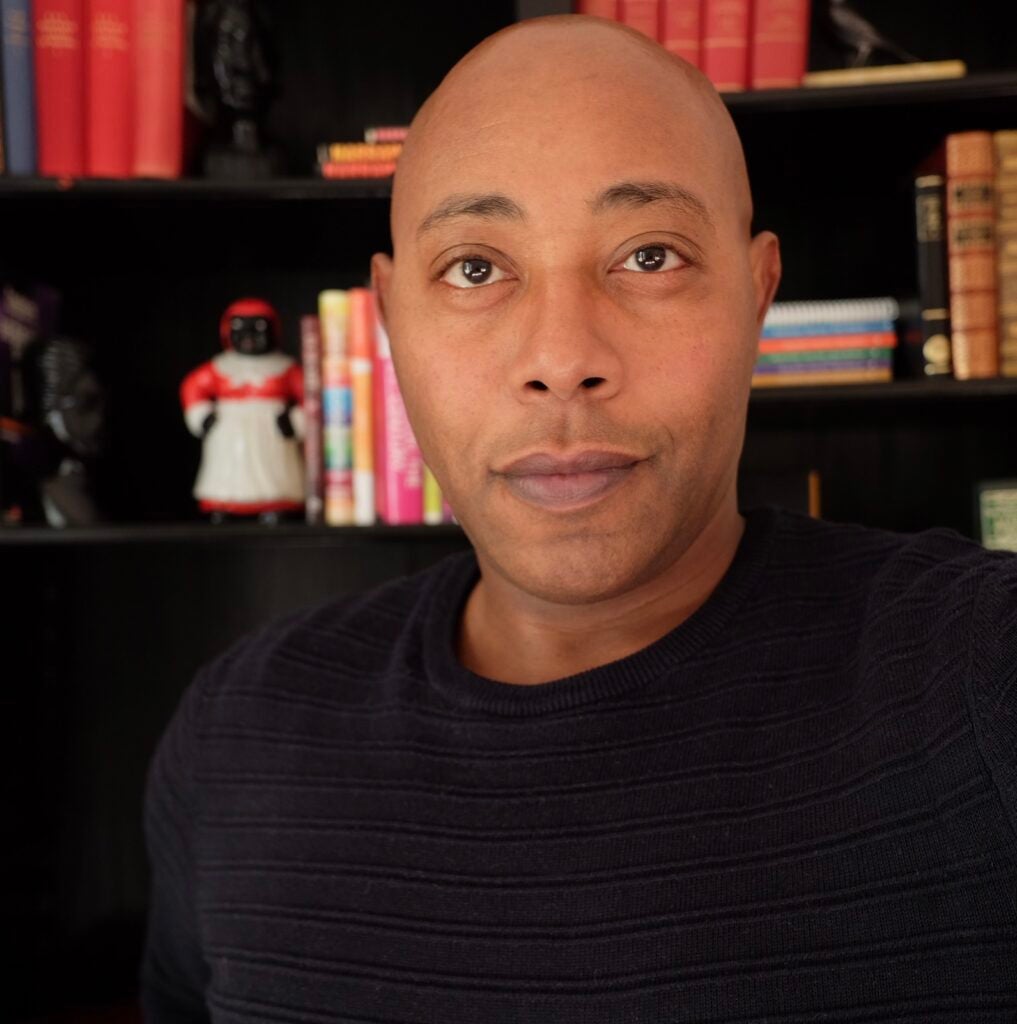
An advocate of educational development, U.S. public diplomacy, and mutual understanding through cultural exchange, Walter Henderson, Jr. has assisted U.S. Embassies worldwide in delivering curriculum design, needs analyses, instructional materials, teacher training programs, and plenary addresses. His accomplishments include successful collaborations with numerous ministries of education, bilateral commissions, and foreign educational institutions. Under the auspices of the U.S. Department of State, Henderson has performed as Senior English Language Fellow with the Ministry of Public Education of Mexico and the Fulbright Commission of Ecuador and has acted as English Language Specialist with assignments to Saudi Arabia, Northern Mexico, Panama, Chile, Ecuador, and the Dominican Republic. Henderson also directed educational development programs with USAID in Egypt and the Ministries of Education and Labor in the United Arab Emirates. He has made significant contributions to ELT publishing in the roles of publisher, author, and editor as well.
Dr. Amy Gooden currently serves as Associate Professor of TESOL/Bilingual Education and Co-Director of the Lesley University Institute for English Language Programs Beyond Borders. She received her Master’s degree in Education from Harvard University’s Graduate School of Education with a specialization in second/world language teaching and learning. She holds a Doctorate in Education from Boston University with a concentration in language teacher education and intercultural education. Her research focuses on case-based pedagogy as a language teaching and intercultural awareness and education tool for educators of multilingual and multicultural learners in K-12 and higher educational contexts; inclusive and decolonizing language teacher education; and arts-based approaches to supporting the needs of multilingual learners. She brings over two decades of experience as a language education practitioner and scholar, including teaching English for Academic Purposes and English for Medical and Scientific Purposes to international students at Harvard University; mentoring pre-and in-service teachers of ESL, dual language, and Spanish in K-12 public schools; serving as Lecturer in ESL/Bilingual/World Language Teacher Licensure Programs at Boston University; spearheading local and international education partnerships; and leading language teacher education courses and workshops. She has presented her research nationally and internationally.
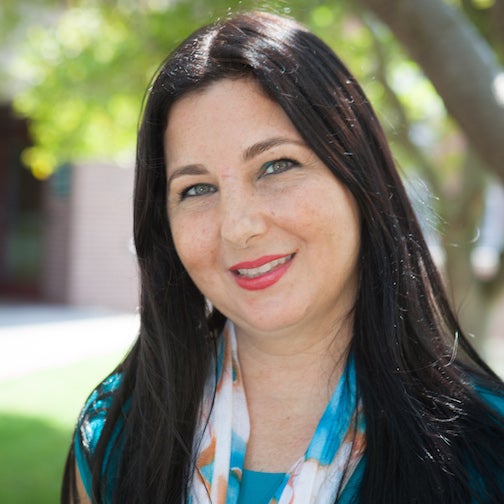

Dr. Marshall G. Jones developed his passion for teaching and learning right after college when he moved to Nakhon Sri Thammarat, Thailand, to teach English at a K-12 school. He earned an M.Ed. and Ed.D. in Instructional Design and Technology at the University of Georgia and has held faculty positions at multiple universities. He is currently the program director for the master’s in Learning Design and Technology at Winthrop University in Rock Hill, South Carolina. His areas of specialization include technology to support teaching and learning, emerging learning technologies, educational media production, instructional design and assessment, online learning, open educational resources, and international applications of learning technologies. He has an extensive publication and speaking resume. He has worked with K-12 schools, universities and multinational corporations on issues related to learning and development in the U.S. and in countries such as Bangladesh, the Philippines, Ukraine, Thailand, and Vietnam.

